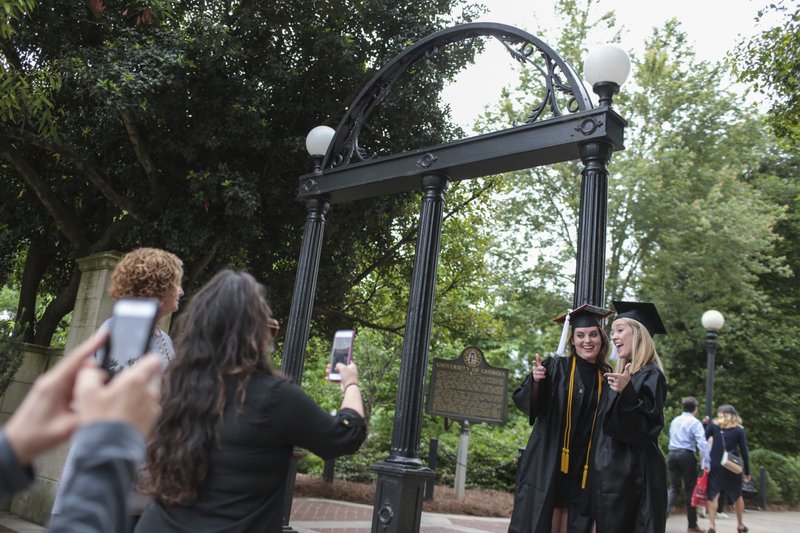ATLANTA -- Georgia's public university presidents and police chiefs were strongly opposed to letting people carry concealed handguns on college campuses. Now that Gov. Nathan Deal has signed the campus-carry law, it falls on them to figure out how to implement it before the next school year begins.
Opponents and supporters alike agree that the law Deal signed Thursday could create complicated landscapes for concealed-weapon permit-holders to navigate when they carry their handguns on campus.
The law, which takes effect July 1, excludes on-campus preschools, faculty or administrative offices, disciplinary hearings and areas where high schoolers take college classes. Also off-limits to concealed weapons are dormitories, fraternity and sorority houses and buildings used for athletic events.
Lawmakers provided no instructions on how campuses should implement the law, unlike the approach Texas lawmakers used last year, which gave campuses latitude on policies, as long as they don't effectively prohibit people from carrying.
In a message to leaders of the University System of Georgia's 28 institutions, Chancellor Steve Wrigley asked individual campuses not to change their policies and said the system will provide guidance.
"We recognize that many have strong feelings about this new law," Wrigley wrote. "It is important that we all work together across our campuses to implement the new law appropriately and continue to provide a top-quality education to our students."
More details about plans to create that guidance weren't available Friday, a system spokesman said.
Janet Frick, chairman of the University Council, the University of Georgia's governing faculty body, opposed allowing any guns on campus and now can't figure out how system administrators will make sense of the law's many exemptions.
Frick, who has worked at the Athens campus for 20 years as a psychology professor, said she worries that the natural flow of campus will create constant problems for people who choose to carry but don't have secure places to leave their guns. Students will move in and out of exempted spaces all day, attending classes that may include high school students, working in the library and meeting with professors, she said.
"These exemptions are a lot to keep track of," she said. "You would hope students who aren't able to secure a weapon just won't bring it to campus."
Deal's objections to guns on campus in last year's veto of a similar bill had many Georgians hoping the outgoing Republican governor, who is term-limited and plans to retire next year, would issue another veto. But Deal said in a written message released Thursday evening that he was swayed by the new exclusions lawmakers wrote into this year's version.
"These excluded areas represent the most 'sensitive places' on a college campus," Deal wrote. "It is altogether appropriate that weapons not be allowed in these areas. I appreciate the thoughtful consideration given by the General Assembly in expanding these excluded areas within a college campus in this year's bill."
Deal said the law may have "greater significance" for students and faculty while traveling to and from campus. A ban, he wrote, requires permit-holders to leave their weapons behind and "assailants can, and do, target these students knowing full well that their victims are not permitted to carry protection."
Dallin Larsen, a 30-year-old doctoral student at the University of Georgia, said he often feels nervous leaving the library at 1 or 2 a.m. and walking across campus to his truck. He said he also worries about his wife, Keely, when she's on campus alone at night as a medical student.
Larsen has a state permit to carry concealed and, off campus, frequently uses a holster that he said hides any sign he's carrying.
"People around me aren't going to know," Larsen said. "I'm going to keep it covered and follow the exceptions, because that's the law."
Georgia joins nine other states that allow concealed weapons to be carried on campuses. Permit-holders must be at least 21 -- or at least 18 with proof of basic training or active service in the military. Applicants must provide fingerprints for a criminal record check, and undergo an additional federal background check.
Violations by "weapons carry license holders" are misdemeanors, punishable by $25 fines and no jail time.
A Section on 05/06/2017
